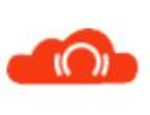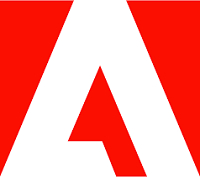Yes, most podcast hosting software is compatible with a variety of devices and platforms, including desktop computers, laptops, tablets, and smartphones. This enables podcasters to record, edit, and submit episodes from any device, ensuring that their material is accessible to listeners across many platforms such as Apple Podcasts, Spotify, and Google Podcasts. Furthermore, some hosting software provides seamless interaction with social media networks, allowing for quick sharing across several channels.
List of Best Podcast Hosting Software
Anchor is the superior BCDR solution tailored for MSPs. It offers a range of customizable deployment choices, robust defense against ransomware threats, and effortless cloud backups for Microsoft 365 and Google Workspace. Simplify your data managemen...Read More Anchor
SoundCloud Helper solution for amplifying your online presence and reaching new audiences on SoundCloud. This user-friendly tool is compatible with all devices and streamlines the setup process for effortless use. Boost your SoundCloud following and...Read More SoundCloud Helper
Cincopa is a software solution tailored for organizing, controlling, and enhancing multimedia content such as videos, audios, and images. With a wide range of features, advanced analysis, and effortless integration, Cincopa enables businesses and ind...Read More Cincopa
Adobe PodCast is a audio editing solution designed specifically for podcasters. This intuitive tool offers powerful noise reduction features and seamless integration with Adobe Creative Cloud for a streamlined production process. Elevate the quality...Read More Adobe PodCast
Podcastle is a audio production software for podcasters and content creators. With its user-friendly interface and advanced AI features, Podcastle streamlines the recording and editing process, ensuring high-quality results for beginners and professi...Read More Podcastle
Podbean is a podcasting platform that simplifies the podcasting journey for creators. Its user-friendly tools, detailed insights, and smooth integration with popular third-party apps help maximize audience growth and revenue potential. Whether youre...Read More Podbean
Buzzsprout, the go-to podcast hosting platform for over 120,000 podcasters. With its user-friendly interface, you can easily start, market, and generate revenue from your show. Benefit from detailed analytics, customizable websites, and top-notch sou...Read More Buzzsprout
Podomatic is a podcasting platform designed to simplify the podcast creation, sharing, and advertising process. With advanced analytics, unlimited storage, and revenue-generating options, Podomatic supports both new and experienced podcasters in achi...Read More Podomatic
Experience seamless content creation with Zencastr solution for podcasters, content creators, and interviewers. With advanced recording capabilities, user-friendly editing tools, and AI technology, Zencastr simplifies the distribution process and hel...Read More Zencastr
Anchor by Spotify is a Podcast Software designed for SMEs, startups, agencies, and enterprises. This all-in-one solution offers a user-friendly Dashboard, seamless API integration, effortless Audio Recording, dependable Hosting services, and hassle-f...Read More Anchor by Spotify
RumbleTalk Chat is a chat solution for websites and virtual events. With 5 versatile chat types and exciting features such as polls, Q&A sessions, file sharing, and moderation tools, its the ideal platform for engaging with your audience. Take your c...Read More RumbleTalk Chat
RSS.com is a podcasting solution that will take your reach and influence to new heights. With unlimited episodes, advanced analytics and seamless distribution on popular platforms like Spotify and Apple Podcasts, RSS.com offers top-notch support and...Read More RSS.com
Podcastics is a podcast hosting solution for your show. With unlimited storage and comprehensive analytics, managing your episodes has never been easier. Effortlessly distribute your content and monetize it while connecting with your audience through...Read More Podcastics
Disctopia is a versatile streaming and podcast hosting platform designed for creators in all industries. It offers a range of advanced content delivery choices, integration options with over 50 platforms, and reliable customer support. With Disctopia...Read More Disctopia
Google Podcasts is a podcast app that streamlines the way you discover and listen to your favorite shows. Its user-friendly interface and personalized recommendations effortlessly cater to your preferences, making podcasting on-the-go a breeze. Say g...Read More Google Podcasts
Learn More About Podcast Hosting Software
- What Is Podcast Hosting Software?
- What Are The Recent Trends In Podcast Hosting Software?
- Benefits Of Using Podcast Hosting Software
- Important Factors To Consider While Purchasing Podcast Hosting Software?
- What Are The Key Features To Look For In Podcast Hosting Software?
- Why Do Businesses Need Podcast Hosting Software?
- How Much Time Is Required To Implement Podcast Hosting Software?
- What Is the Level Of Customization Available In Podcast Hosting Software?
- Which Industries Can Benefit The Most From Podcast Hosting Software?
- Conclusion
What Is Podcast Hosting Software?
Podcast hosting software is a digital technology that helps individuals and organizations create, publish, and distribute podcasts online. This software allows you to host and store audio recordings, as well as manage and organize podcast episodes. With the growing popularity of podcasts, selecting the correct hosting software is critical for a successful podcast.
These hosting providers provide a variety of features and functionality, allowing podcasters to reach a larger audience and build their podcast brand. One of the primary benefits of using podcast hosting software is the ease of uploading and managing podcast episodes. The software often includes a content management system, which allows users to upload and organize audio files, add show notes and descriptions, and schedule episode releases.
In addition to content management, podcast hosting software provides a variety of distribution possibilities. Most systems provide publishing features that enable users to distribute their podcasts to prominent listening services like Apple Podcasts, Spotify, and Google Podcasts. This makes it easier for podcasters to expand their audience and track their listenership.
Another important aspect of podcast hosting software is the availability of analytics and stats. This enables customers to measure the performance of their podcast, monitor listener demographics, and gain valuable insights to help improve their content and marketing approach. Aside from these essential capabilities, podcast hosting software may include extra tools like custom branding, monetization, and support for numerous users and episodes.
Some even provide additional capabilities such as transcription services and automation tools to help streamline the podcasting process. When looking for podcast hosting software, you should evaluate pricing, storage and bandwidth constraints, convenience of use, and customer service. It is also critical to find a platform that is compatible with your podcasting objectives and audience size.
What Are The Recent Trends In Podcast Hosting Software?
Podcasting has grown rapidly in recent years, with millions of listeners regularly tuning in to their favorite episodes. As a result, the need for podcast hosting software has grown. This has resulted in ongoing innovation and development in the business, with new trends emerging to fulfill the needs of podcasters.
Let's explore, we'll go over the latest trends in podcast hosting software that every buyer should be aware of.
1. User-Friendly Interfaces And Intuitive Tools: One of the most common trends in podcast hosting software is an emphasis on user experience. Providers are increasingly offering platforms with user-friendly interfaces and straightforward features to help beginners get started and seasoned podcasters manage their shows more efficiently. This trend is in reaction to an increasing number of non-technical podcasters who want to create and broadcast their own shows.
2. Customizable Price Plans: Another popular feature in podcast hosting software is the provision of customizable pricing options. Many providers have shifted away from the traditional monthly subscription model and now provide a variety of plans to meet various demands and budgets. This enables podcasters to select the optimal package for their needs while avoiding splurging on items they do not require.
3. Integration With Other Platforms: As podcasting becomes more popular, many podcast hosting software providers now offer integration with other platforms such as social media, e-commerce, and email marketing. This enables podcasters to reach a broader audience and monetize their shows via many sources.
4. Advanced Analytics And Data Tracking: Data is essential in any industry, and podcasting is no exception. Podcast hosting software now provides advanced analytics and data tracking features to enable podcasters monitor the effectiveness and success of their shows. This information can then be used to make sound choices about content, marketing techniques, and monetization approaches.
5. Improved Security And Reliability: As podcasting gets more popular, the demand for secure and dependable hosting solutions grows. This has resulted in a tendency among podcast hosting software companies to invest in sophisticated security measures and ensure high server uptime rates. This means that podcasters can be assured that their data and episodes are secure, and that their listeners will be able to access their show uninterrupted.
Benefits Of Using Podcast Hosting Software
Podcasting has grown in popularity in recent years as a way to create and distribute audio content to a large audience. However, establishing and sustaining a successful podcast can be a difficult endeavor, especially for individuals who lack technical knowledge. This is where the podcast hosting software comes in. Podcast hosting software is a powerful tool that allows podcasters to quickly manage and distribute their audio content, freeing them up to focus on creating high-quality episodes.
One of the primary advantages of using podcast hosting software is its ease of use. Most podcast hosting software has user-friendly interfaces and capabilities that allow anyone to easily upload and publish audio episodes. This implies that even if you have little or no technological skills, you can create and manage your podcast without difficulty.
Podcast hosting software also includes a number of customization options, allowing you to tailor your podcast to your preferences. You can customize your podcast's theme, logo, and URL. This not only gives your podcast a professional appearance, but it also helps to create your brand in the competitive podcasting industry. Another advantage of using podcast hosting software is that it provides limitless storage and bandwidth.
This means you can upload as many episodes as you like without worrying about running out of space or incurring extra fees. Furthermore, most podcast hosting software has built-in analytics tools that reveal information about your audience's demographics and listening habits, helping you to improve your content and reach a wider audience.Perhaps the most major advantage of using podcast hosting software is the distribution it provides.
Podcast hosting software allows you to publish your episodes on many platforms at the same time, such as Apple Podcasts, Spotify, Google Podcasts, and others, rather than having to manually upload them to each one. This saves you time and work and allows you to reach more listeners. Finally, many podcast hosting software includes revenue features like as dynamic ad insertion, sponsorships, and premium material for paying subscribers. These methods can help you monetise your podcast and make it a viable business.
Important Factors To Consider While Purchasing Podcast Hosting Software?
Podcast hosting software is an essential tool for any podcaster who wishes to share their audio content with the world. However, with so many options on the market, it might be difficult to find the best one for your personal requirements.
To help you make an informed decision, we've developed a list of key considerations to consider when selecting podcast hosting software.
1. Storage And Bandwidth: The quantity of storage and bandwidth given by the hosting software is critical since it affects how much information you can post and how many listeners can access it. Make sure to select hosting software that provides adequate storage and bandwidth to support your podcast's growth and reach.
2. Audio Quality: The quality of your podcast's audio is critical to attracting and retaining subscribers. Look for hosting software that provides high-quality audio compression and supports the formats used to record your podcast.
3. Ease Of Use: As a podcaster, you want to concentrate on creating amazing content rather than fumbling with difficult tools. Choose a hosting platform with a simple and straightforward interface to make managing your podcast a snap.
4. Analytics And Stats: It is critical to monitor your podcast's performance using the analytics and stats given by the hosting platform. Look for software that provides detailed insights on your audience's demographics, listening behaviors, and engagement levels, allowing you to better understand and tailor your content.
5. Monetization Options: If you intend to monetize your podcast through adverts or sponsorships, ensure that the hosting program supports this feature. Look for systems that allow you to connect with potential sponsors or support integrated advertising.
6. Platform Compatibility: Your podcast should be available to listeners on a variety of platforms, including Apple Podcasts, Spotify, and Google Podcasts. To enhance your reach and audience engagement, use hosting software that integrates easily with various platforms.
7. Customer Help: In the event of a technical difficulty or question, it is critical to have dependable customer help from the hosting software. Look for platforms that provide timely and knowledgeable customer service to ensure a seamless podcasting experience.
8. Pricing: Finally, investigate the price alternatives provided by podcast hosting software. Some platforms charge a fixed monthly or annual price, while others charge based on storage and bandwidth usage. Compare many possibilities and select the one that meets your budget and offers the most value for money.
What Are The Key Features To Look For In Podcast Hosting Software?
Podcast hosting software is a vital tool for any content creator wishing to get into podcasting. The appropriate software can make or break your podcast's success, therefore before purchasing any hosting software, thoroughly analyze its capabilities.
The following are the important characteristics to look for in podcast hosting software.
1. Ease Of Use: The hosting software should be simple to use and browse. It should feature a straightforward interface that allows you to easily publish, modify, and manage your podcast episodes. This is especially critical for newcomers, who may lack technical knowledge.
2. Monetization Alternatives: If you want to monetise your podcast, the hosting software should provide a variety of monetization alternatives. This could include built-in sponsorship options, contribution mechanisms, or the opportunity to sell products. Make sure to select software that matches your intended revenue stream.
3. Analytics: Access to detailed analytics is critical for measuring the success of your podcast and understanding your audience. Look for hosting software that provides detailed information about downloads, listener demographics, and engagement rates. This information might help you make smart decisions about how to improve your podcast and attract more listeners.
4. Storage And Bandwidth: As a podcaster, your hosting software will serve as an online repository for your audio files. It is critical to select software that has sufficient storage space and bandwidth to accommodate a high volume of downloads and broadcasts. Keep in mind that some hosting software may have storage limits or charge extra costs for exceeding them.
5. Customization Choices: A good podcast hosting platform should include customization choices so that your podcast stands out. This might include the opportunity to design bespoke cover art, add background music, and select from a choice of podcast website themes.
6. Distribution: One significant advantage of using podcast hosting software is the option to publish your podcast to several platforms, including Apple Podcasts, Spotify, and Google Podcasts. Make sure you select hosting software with a broad distribution reach and easy connection with various platforms.
7. Customer Assistance: Finally, choose a podcast hosting platform that provides good customer assistance. If you run into any technical problems, you'll need a dependable support crew to help you. Choose software that offers a variety of help channels, including email, live chat, and phone assistance.
Why Do Businesses Need Podcast Hosting Software?
In recent years, podcasts have grown in popularity as a means of exchanging information, stories, and ideas. With the rise of podcasting, many businesses have begun to use this medium to reach and engage with their target audience. However, creating and sustaining a podcast may be a difficult and time-consuming task. This is where the podcast hosting software comes in. Simply simply, podcast hosting software is a service that enables businesses to store and distribute their podcast episodes across several platforms. But why should businesses use podcast hosting software? Let's look at the primary causes.
1. Centralized Storage: One of the key reasons organizations use podcast hosting software is to centralize the storage of their podcast episodes. A podcast hosting service offers a dedicated location to store all of your podcast files, making them conveniently accessible and organized. This reduces the need to keep files across various devices or platforms, which saves time and effort.
2. Reliable Distribution: Podcast hosting software ensures that your podcast episodes are consistently distributed to key platforms such as Apple Podcasts, Google Podcasts, Spotify, and others. This eliminates the bother of manually uploading and managing podcasts on each platform, resulting in a larger reach for their material.
3. Customization And Branding: Many podcast hosting software packages include customization and branding choices for enterprises. This enables them to personalize their podcast channels with brand features such as logos, colors, and themes, presenting a more professional and consistent picture to their target audience.
4. Analytics And Insights: Another compelling argument for organizations to employ podcast hosting software is the access to analytics and insights. These solutions give businesses with useful data such as episode downloads, audience demographics, and listening locations, allowing them to better understand their audience and make informed decisions about future episodes.
5. Monetization Opportunities: Podcast hosting software frequently includes monetization opportunities such as ad placement, sponsorships, and premium content. This enables businesses to generate revenue from their podcasts, resulting in a profitable endeavor.
How Much Time Is Required To Implement Podcast Hosting Software?
The time required to implement podcast hosting software varies based on a number of factors, including the software utilized, the size and scope of your podcast, and your level of technical knowledge. However, most podcast hosting software is meant to be user-friendly and simple to set up, so even individuals with little technical understanding should be able to get started fast.
A basic podcast setup with minimum customization may simply require a few hours to get the hosting software up and running. This includes registering an account, adding podcast files, and configuring your RSS feed. Some podcast hosting software also includes templates and simple tools for creating a website for your podcast, which may be done in a few hours.
If you have a larger and more involved podcast, such as one with numerous hosts or frequent guest appearances, it may take some time to set up and integrate the hosting software with your website and other resources. In this instance, it may take a few days to fully integrate the software and guarantee that everything works properly. It's also worth noting that some podcast hosting software has other features and capabilities, like as analytics and monetization choices, which may take some time to learn and use.
Overall, implementing podcast hosting software takes only a few hours to a few days, depending on your individual requirements and level of technical ability. It's critical to select software that corresponds with your objectives and needs, as well as one that provides user-friendly tools and assistance to ensure a smooth implementation process.
What Is the Level Of Customization Available In Podcast Hosting Software?
When it comes to podcast hosting software, the extent of flexibility varies by platform. Some software may feature a large number of adjustable settings, but others may have a smaller selection. When deciding on the level of customization, examine what features are most important to your podcast and how much control you want over your hosting platform.
Here are some important factors to consider when evaluating the level of flexibility in podcast hosting software:
1. Branding And Design: One facet of customisation is the option to personalize your podcast with your logo, custom colors, and other design aspects. This can help give your podcast a more professional and cohesive appearance.
2. Custom Domain: Some hosting services allow you to choose your own domain name for your podcast website, providing you more branding control while also making it simpler for listeners to find and recall your podcast.
3. Episode Organization: The level of customisation might influence how your episodes appear on your podcast website. Some software lets you arrange episodes in a specified sequence, whilst others may merely provide a chronological list.
4. Audio Player Options: Customizing the audio player is a crucial consideration. Some software lets you customize the player's size, color, and style to match the design of your website.
5. Monetization Options: If you want to monetize your podcast, certain hosting software allows you to put adverts, set up paid subscriptions, or offer premium material.
6. Analytics: The extent of customization for analytics varies substantially between hosting systems. Some may provide basic listener data, while others provide more detailed analytics, letting you to measure listener demographics, retention rates, and other metrics.
7. Integration With Third-Party Solutions: Customization includes the ability to integrate with third-party solutions such as marketing automation systems or social media management software. This can help to streamline the podcast production and promotion processes.
Overall, the level of flexibility provided by podcast hosting software can have a significant impact on your podcast's functionality and branding. Before deciding on a hosting platform, you should thoroughly analyze your requirements and priorities.
Which Industries Can Benefit The Most From Podcast Hosting Software?
Podcast hosting software has become an indispensable tool for organizations and individuals seeking to interact with their target audience via audio content. As the popularity of podcasts grows, so does the demand for dependable and comprehensive podcast hosting services.
Let's explore, we'll look at which sectors can profit most from podcast hosting software.
1. Media And Publishing Industry: The media and publishing industries were among the first to adopt podcasting as a mode of content delivery. Podcast hosting software enables media firms to effortlessly create and deliver high-quality audio material to their viewers. They can also monetize their podcasts with commercials and sponsorships, making it a viable business.
2. Marketing And Advertising Industry: Podcasts are an excellent tool for businesses to engage their target audience in a more targeted and engaging manner. Podcast hosting software enables marketing and advertising companies to create and distribute branded podcasts for their clients, thereby increasing brand awareness and driving sales.
3. Education And Training Industry: Podcasts are an effective educational tool, and podcast hosting software makes it easier for educators to record and distribute audio courses, lectures, and discussions to their students. Podcasts can also be utilized for staff training and development, making them an effective tool in the corporate training industry.
4. E-commerce And The Retail Industry: With the rise of e-commerce, merchants are continuously seeking for new ways to market their items and connect with customers. Podcast hosting software enables them to make branded podcasts, publish product reviews, and provide special bargains, thereby improving consumer engagement and revenue.
5. Non-Profit And Cause-Based Organizations: Podcasts can be an effective tool for non-profit and cause-based organizations to create awareness, promote their vision and goals, and recruit donors. They may quickly create and share audio content using podcast hosting software to interact with their followers and broaden their reach.
Conclusion
Following extensive research and analysis, it is clear that selecting the appropriate podcast hosting software is critical to the success of your podcast. This buyer's guide has discussed all of the important variables to consider before making a decision. Pricing and features, as well as simplicity of use and customer support, are all important considerations when deciding which podcasting service is right for you.
First and foremost, while choosing podcast hosting software, evaluate your budget and the functionality you need. Some software may provide all-inclusive packages, but others offer a more configurable approach. It is critical to examine your demands and select a plan that is within your budget and objectives. Another important thing to consider is ease of use. As a podcaster, you want a user-friendly platform that allows for easy navigation and maintenance of your podcast.
Some applications may have a steeper learning curve, whereas others have a more user-friendly design. It is critical to select a platform that is simple to use, especially if you are new to podcasting. Customer service is also an important factor to consider while choosing podcast hosting software. Technical issues or questions may emerge, and it is critical to have dependable customer service to assist you swiftly.
Look for platforms with 24-hour support and a reputation for offering speedy and useful assistance to its users. In addition, the software's scalability must be considered. As your podcast grows, you may need to upgrade to handle increased traffic and episodes. As a result, choose a platform that can meet your future needs and has opportunity for expansion.Finally, analyze the analytics and marketing options provided by the product.
These tools might help you monitor the success of your podcast and achieve a larger audience. Look for platforms that provide thorough data as well as marketing capabilities like social media integration and promotions. To summarize, choosing the best podcast hosting software takes careful consideration of your budget, features, convenience of use, customer service, scalability, and marketing tools. With this buyer's guide, you can make an informed purchase that meets your podcasting demands and helps you succeed in the podcasting industry.
Podcast Hosting Software FAQ's
Can Podcast Hosting Software Be Accessed Across Multiple Devices And Platforms?
Is Podcast Hosting Software Future-Proof And Adaptable To Emerging Technologies Like AI, Blockchain Or IoT?
Yes, podcast hosting software is always evolving and adapting to new technologies like as artificial intelligence, blockchain, and the Internet of Things. As these technologies evolve and become more integrated into many businesses, podcast hosting software companies stay up by including them into their platforms. This ensures that your podcast hosting experience is consistent and efficient, making it future-proof and adaptable to developing technologies for a pleasant podcasting experience.
Is There A Free Trial Offered To Assess Podcast Hosting Software Before Committing?
Some podcast hosting software vendors may provide a free trial to allow consumers to evaluate their platform before committing. This allows potential users to evaluate the software's capabilities, user interface, and general performance. However, not all suppliers provide a free trial, and the length of the trial period may differ. To choose the best podcast hosting software for your individual requirements, you must first conduct research and compare several solutions.
Does Podcast Hosting Software Offer Data Security Features And Meet Regulatory Compliance Standards?
Yes, most podcast hosting software includes data security safeguards and adheres to regulatory compliance norms. This protects sensitive information while adhering to industry requirements like GDPR and HIPAA. To prevent data breaches, this program uses data encryption, secure servers, and regular backups. They also have mechanisms in place to enforce copyright laws and defend intellectual property rights. You may be confident that your data and podcast material are safe with trustworthy hosting software.
Can Podcast Hosting Software Integrate Seamlessly with Existing Tools And Platforms?
Yes, most podcast hosting software available on the market integrates seamlessly with existing tools and platforms. This enables easy episode management and dissemination across prominent streaming services, social media platforms, and websites. Furthermore, some software provides automatic transcription and analytics integration, making it easy for podcasters to monitor their performance. Podcast hosting software uses these integrations to expedite the entire production and distribution process, saving podcasters time and effort.

















